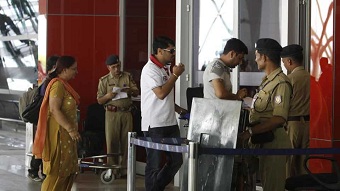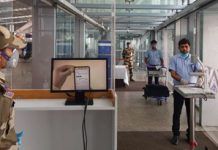The Union Civil Aviation ministry has commissioned a survey to find out what kind of security jobs at airports can be outsourced to private agencies in an effort to cut costs, two officials familiar with the matter said. Security at 61 of at least 100 operational airports is provided by the Central Industrial Security Force (CISF), which is the nodal force for aviation security. However, most smaller airports under the Regional Connectivity Scheme (RCS) are secured by the local police which, experts say, compromises security.
The point of the study is to have clarity on which non-core jobs can be done by private guards, so the CISF can be withdrawn, one of the officials cited above said. “We have had discussions with the CISF, Bureau for Civil Aviation Security (BCAS) and some private security agencies. One agency has been asked to do the survey and they will be given access to a few airports. They will suggest which part [of security operations] can be outsourced,” said a Civil Aviation ministry official.
The CISF is learnt to have conveyed that core jobs such as frisking of passengers and access control—entry to airports, checking at departure gates—must remain with it while peripheral jobs — watchtower posts and patrolling along the boundary wall — can be given to private agencies or the local police, whichever is suitable. “The CISF was tasked with aviation security after the 2001 Kandahar hijack, so the mandate to provide anti-hijacking [services] should always remain with CISF. While we would want RCS airports to be covered by CISF, to reduce the cost burden, we have proposed a different model where CISF’s security will be aircraft-centric instead of airport-centric. This means we will have a mobile team, which will go to the airport before a plane lands. Once the plane departs, the CISF will go back and then the airport can be secured by private guards or the local police,” said a senior CISF official. With more and more cities gradually coming up on the aviation map and being connected with flights, security has become a paramount concern.
“If CISF security is not there at smaller airports, those will be the weakest link in the chain. There must be uniformity in aviation security. The concerned agency can take a call if it wants to give non-core jobs to a private agency, but anti-hijack measures should always be with the CISF,” said Arvind Ranjan, a former Director General of the CISF.








